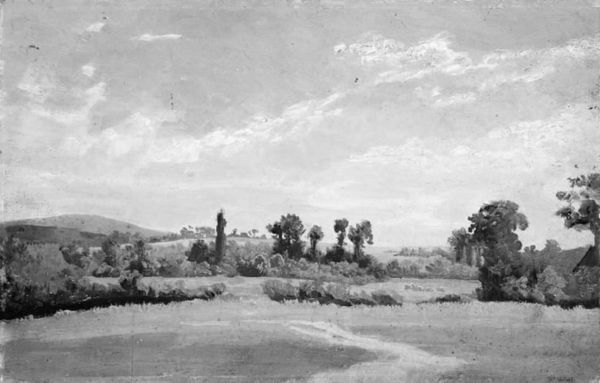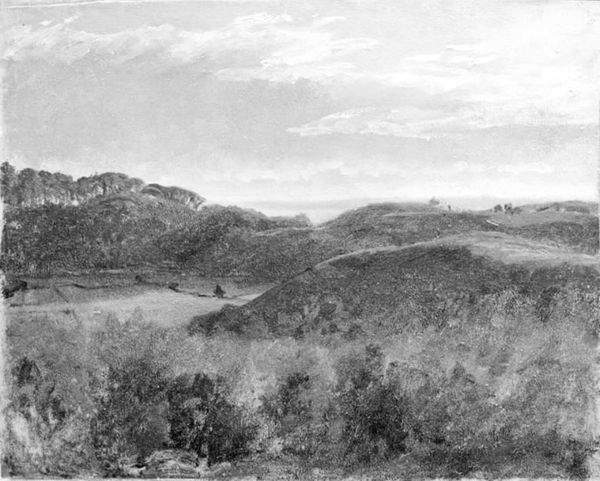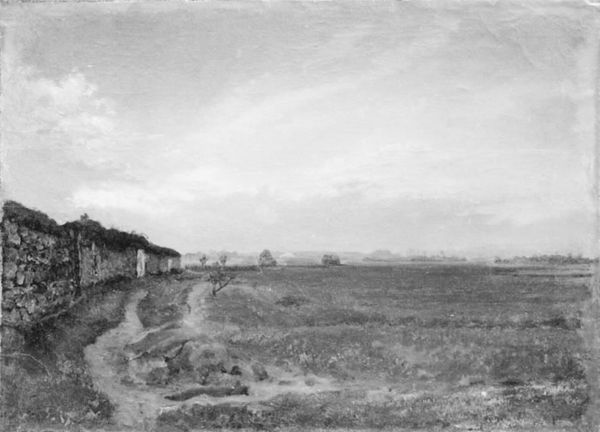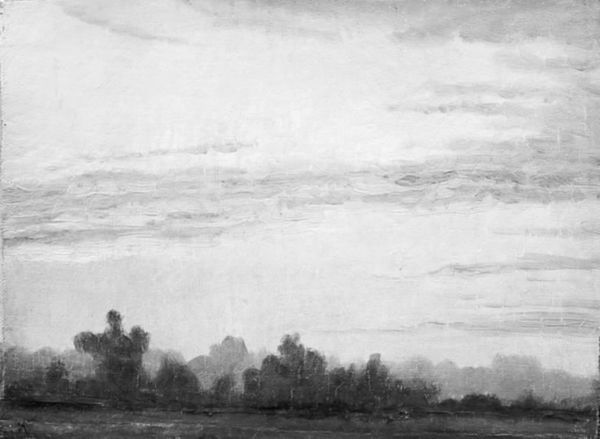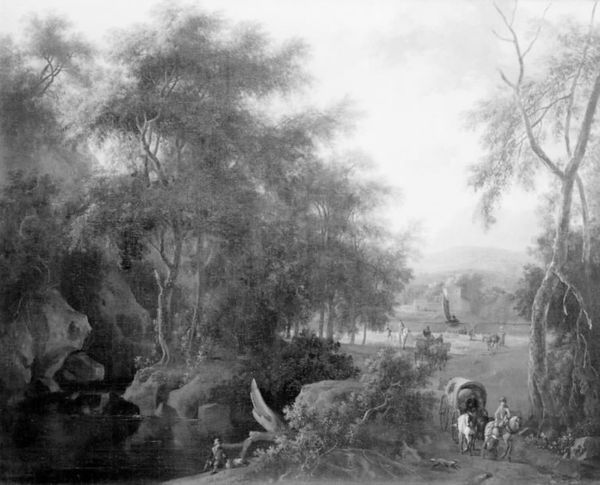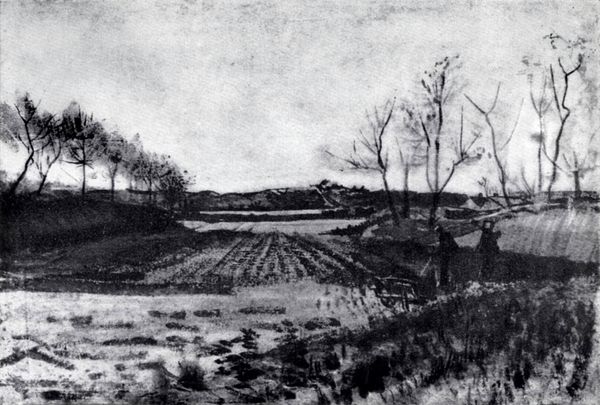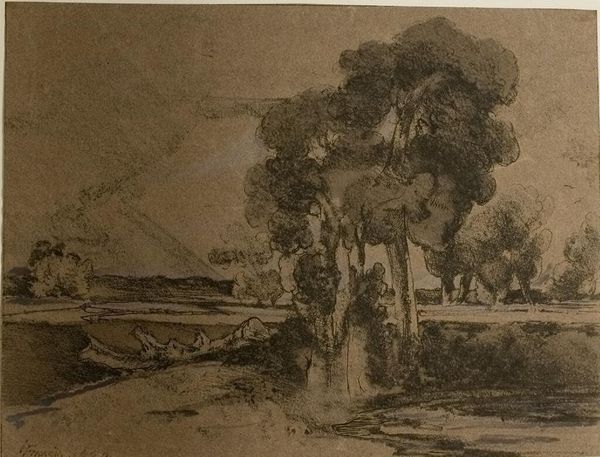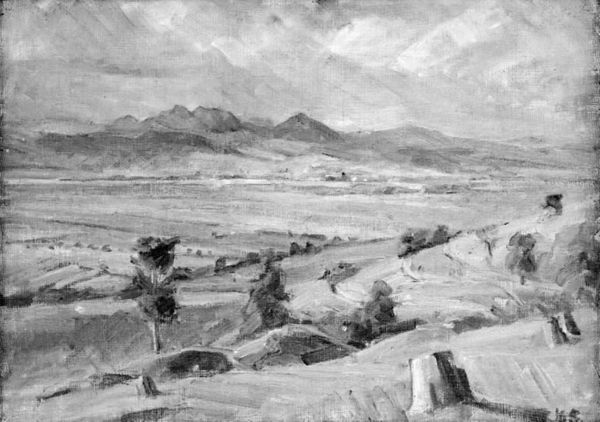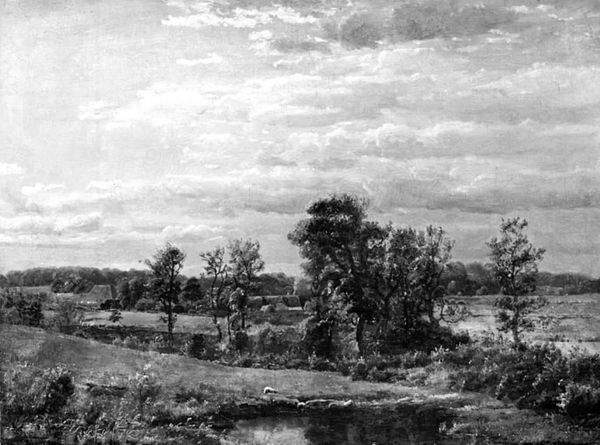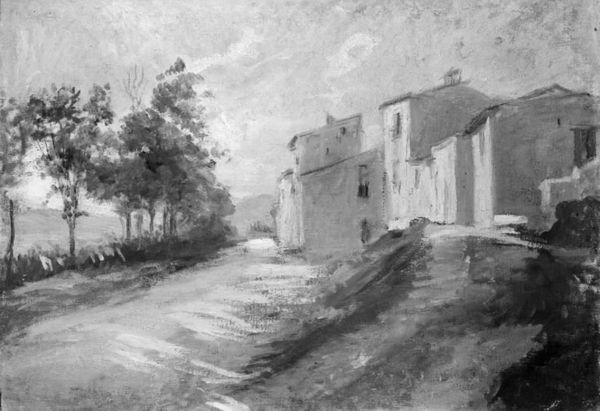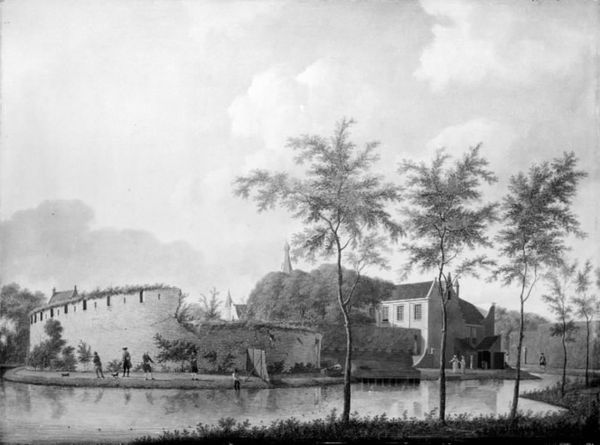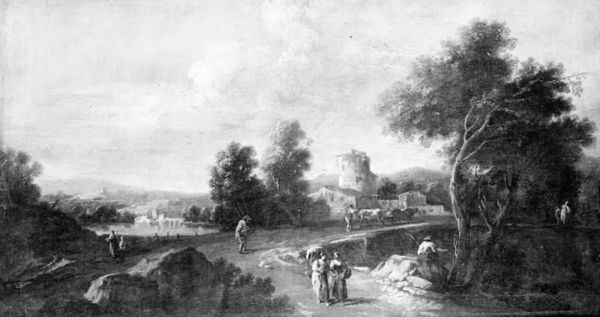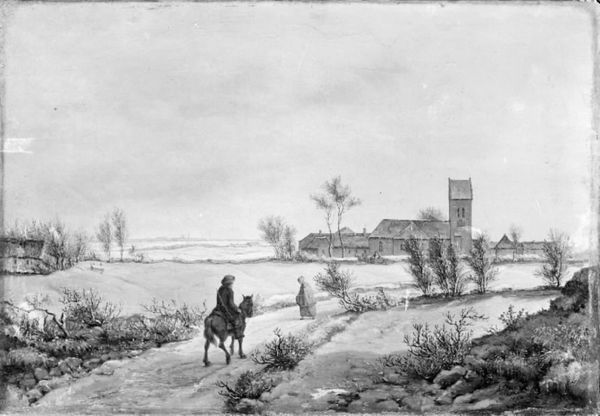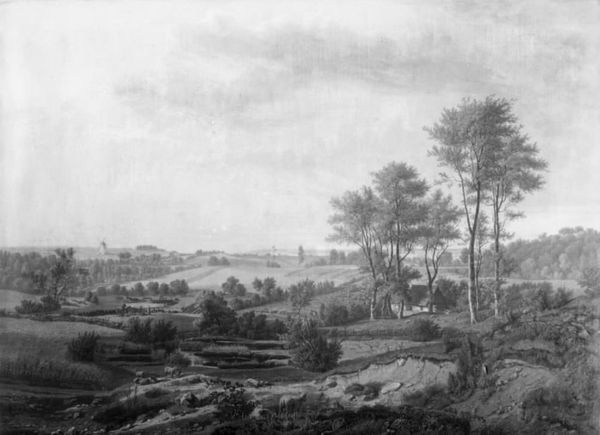
canvas
#
scenic
#
solitude
#
rough brush stroke
#
countryside
#
incomplete sketchy
#
charcoal drawing
#
charcoal art
#
canvas
#
scenic spot
#
charcoal
#
shadow overcast
Dimensions: 15 cm (height) x 34.5 cm (width) (Netto)
Curator: Oh, I'm immediately drawn in. There's such an evocative mood; like a half-remembered dream of a place, captured in charcoal whispers. Editor: Indeed. This piece is August Jerndorff’s “View of the Elbe from Stadt London in Dresden," dating back to 1875. It's interesting because Jerndorff is known for portraits, so this scenic deviation is a curious addition to his portfolio, wouldn’t you agree? Curator: Absolutely! I sense that artistic exploration when an artist’s venturing into uncharted territory. Look at the sketched strokes – the rawness makes it more palpable. Editor: He paints—or rather, sketches—a particular social geography. Consider Dresden in the 1870s, undergoing significant industrialization and urbanization. The vantage point from "Stadt London," likely a hotel or inn, gives Jerndorff a privileged position to observe the changing landscape. There's a sense of detachment. Curator: Detachment is definitely palpable, though to me it’s like a lonely symphony. The incomplete sky against the detailed facades – it begs the question of intention. Is he suggesting progress versus nature? I wonder what’s beneath those hazy shadows! Editor: Perhaps. Or maybe it is less a grand social commentary and more an aesthetic preoccupation. Charcoal on canvas allows for atmospheric effects but lacks the political punch some might read into it. Curator: Well, art invites everyone in – doesn’t it? I like seeing the charm through charcoal’s gentle hand. Perhaps, for me, its gentleness adds weight to what those rapid strokes intentionally omit. The personal is political, as some might say, even here. Editor: Certainly. It's the paradox of a landscape that whispers rather than shouts its message. Its intimacy also belies how art institutions mediate these "personal" artistic expressions and shape how the public understands a place. Jerndorff certainly does not seem burdened by our interpretations; one imagines he’d happily return to his portraiture. Curator: Perhaps we should just meet art halfway. A private glimpse of Jerndorff and his river that then opens to collective readings. The Elbe continues flowing through history, no matter how our vision clouds it! Editor: Quite. Whether document or dream, its accessibility continues today, thanks to public collections. And as always, what each of us sees in it also changes, influenced by the currents of our own experiences.
Comments
No comments
Be the first to comment and join the conversation on the ultimate creative platform.
